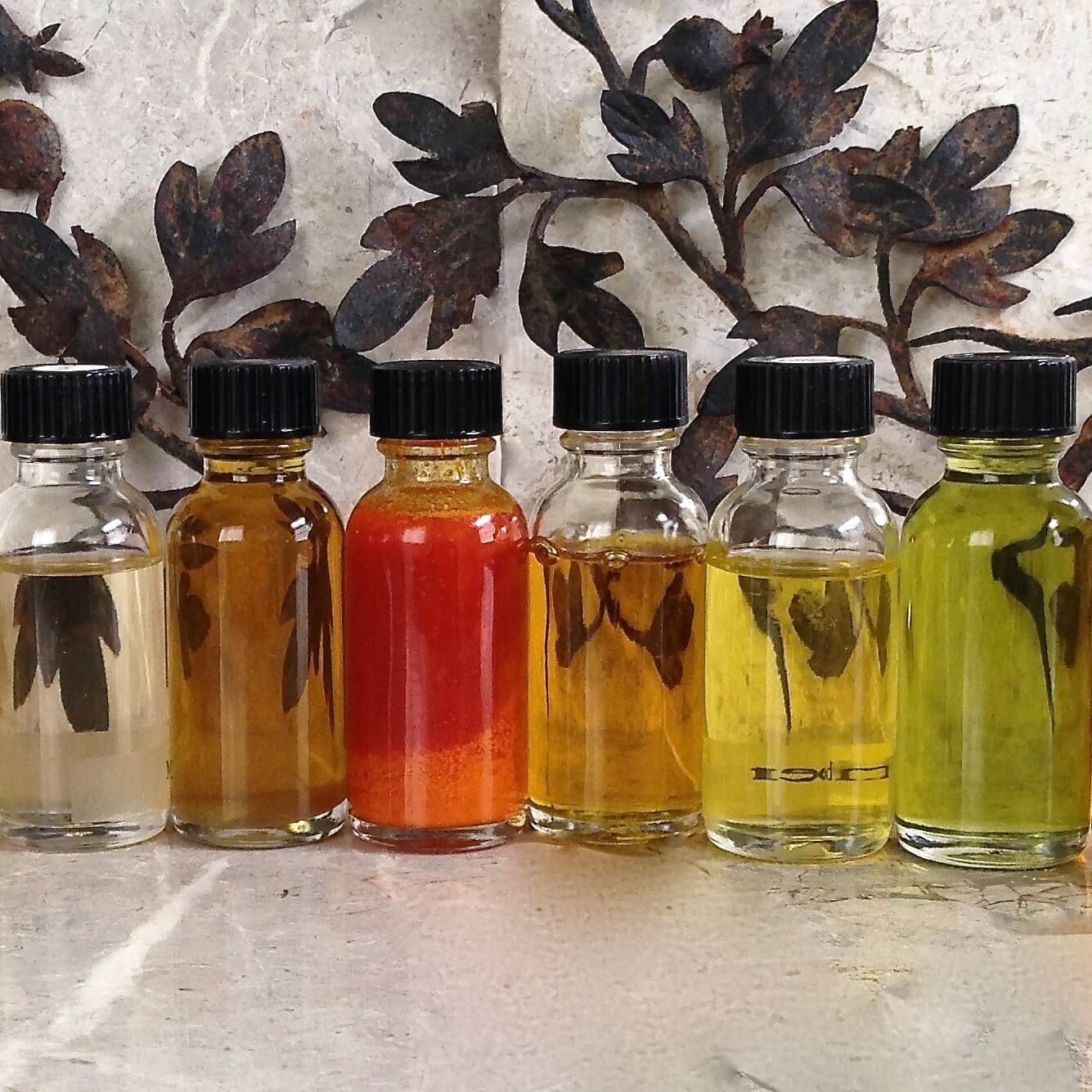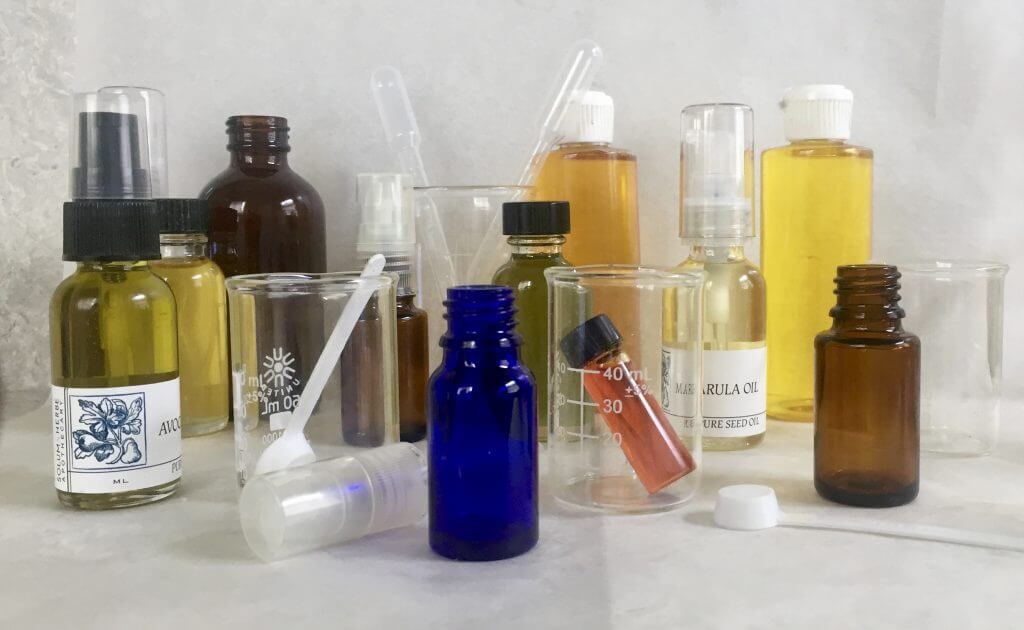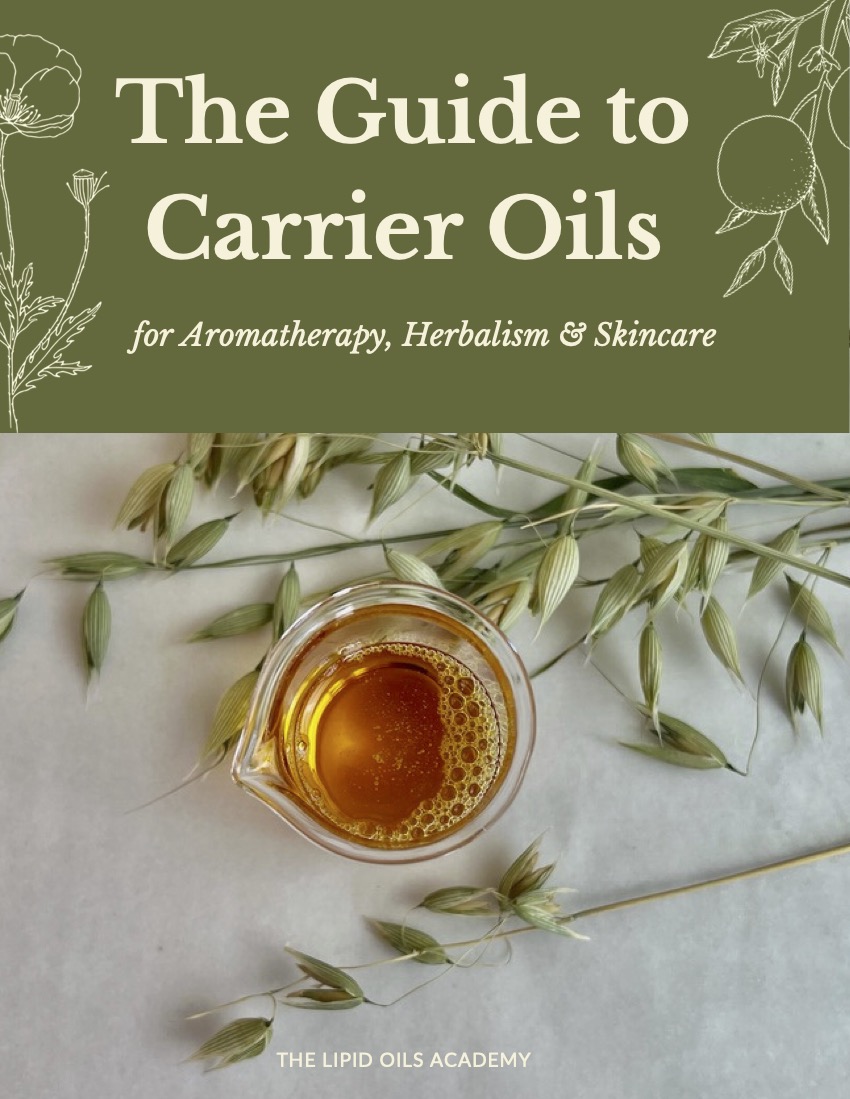Lipids, a term borrowed from the Greek meaning fat, lipos, is an important part of our bodies’ make up. Oil on the outside, oil on the inside; our cells are composed of half fats, and being made up of so much fat, our cells need quality fats to support and replenish them. The importance of living oils nourishing us from the inside is matched by supplementing with high quality oils massaged into our skin. Using oils to nourish both sides of your body is a path to health. Lipids include the liquid oils and solid butters from both animal and vegetable sources.
Living Oils
Don’t confuse petroleum jelly and margarine for the living, natural oils from the plant and animal world. When produced by nature, preferably grown or raised organically, vegetable oils and dairy from animals are health-creating foods. Fatty acids are the predominant component of oils and come in a variety of lengths, degree of saturation and structure. Our bodies recognize these similar compounds and produce its own versions.

Where Oils Come From
Maintaining skin structure and health requires high quality oils in both the diet and on the skin. The healthy oils, those that come from seeds of a wide variety of trees, grasses, shrubs, annuals and perennials are produced from seeds in all parts of the world except the arctic. The tropics produce protective butters from palms and native trees that hold their integrity in the heat and active growing climate. To the north and south, the temperate regions produce active unsaturated oils that include the essential fatty acids that carry sunlight into the body for optimum metabolic activity.
Oil and Your Skin
Human skin makes the same fatty acids found in natural fats and oils creating a compatible and self-supporting system. Olive oil is as useful to dress a salad, as it is to moisturize and protect the skin. There are a tremendous number of oils produced by the plant world made up of a variety of fatty acids. This collected variety is what creates the differences between solid cocoa butter and super liquid grapeseed oil. Most are used for both food and for the skin.
Natural oils vs. petroleum and highly processed fats
Synthetic oils, mineral oils, hydrogenated oils and fats are the lipids that aren’t compatible with the body. They don’t share the fatty acids our skin makes, coating the surface, clogging pores, and keeping the skin from its natural process of respiration. As the body doesn’t recognize these non-living compounds, they can cause harm and contribute nothing to health. Avoid these in both cooking and especially skin care.
The Right Way to Use Oils
Using oils properly takes a bit of understanding the differences in their structure. As a general rule, if it’s solid it is safe to cook with using heat. On the skin these saturated butters will protect the outer layers against the sun and weather. Olive, avocado, sesame and almond oils are excellent for salads, flavoring and food preparation using minimal heat. The skin uses these for moisturizing and protection. The more unsaturated oils like grapeseed, flax, and evening primrose are used as supplements. In food, avoid the use of heat and on the skin they will nourish cells and support skin tissues all while absorbing easily.



Susan, do you have any experience with Sea Buckthorn oil? It is said to be very high in vitamin C and thought it might be a good one to try for my melasma brought on by pregnancy. I am not pregnant, that was five years ago and still have some melasma(darkening spots on my face).
Yes, sea buckthorn oil is a wonderful one. Whether it has vitamin C in it is still an open question because of the vitamin’s solubility in water, not oil. But the carotenes in the oils like sea buckthorn, rose hip seed and others can help heal damaged skin. Many swear by prickly pear for lightening spots on the skin. Also papaya seed oil was mentioned in the facebook group recently and Pracaxi seed oil is helping some. This subject comes up frequently in the big Facebook group, good luck with this.
Does it mean this oils can’t be use in our skin,if yes,how can we use them,morning or night.
Yes, using oils is great for the skin, just use natural ones from the plants or animals like emu oil. You don’t need much, just a few drops of high quality oil right after washing. Your skin will let you know what it likes!